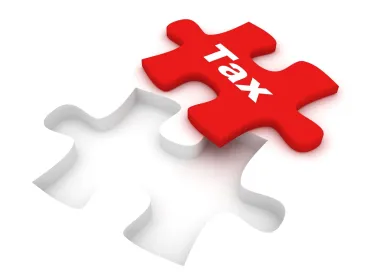On August 4, 2016, representatives of the Texas Comptroller of Public Accounts held a limited-invite roundtable to discuss the proposed amendments to 34 Tex. Admin. Code 3.584, relating to the reduced rate available under the Texas Franchise Tax for retailers and wholesalers. As previously reported, these proposed revisions were published in the Texas Register on May 20, 2016 and have the potential to double the tax rate for a substantial number of businesses – namely those in the information technology and pharmaceutical industries.
Members of the Comptroller’s office present included Karey Barton, Associate Deputy Comptroller for Tax, Theresa Bostick, Manager of Tax Policy, William Hammer, Special Counsel for Tax and Jennifer Burleson, Assistant General Counsel. Several representatives of businesses and trade groups, along with legal and accounting professionals, were also present.
Ms. Bostick opened the meeting by reiterating the language of the statute and the proposed regulation, and clarifying the application of the proposed regulation’s language. To briefly summarize, the proposed rule provides that a retailer is considered to produce the products it sells (and therefore may be disqualified from the lower Franchise Tax rate available for retailers) if it “acquires the product and makes modifications to the product that increase the sales price of the product by more than 10 percent.” See proposed Rule 3.584(b)(2)(C)(i). A business will also be considered a producer if it “manufactures, develops, or creates tangible personal property that is incorporated into, installed in, or becomes a component part of the product that it sells.” See proposed Rule 3.584(b)(2)(C)(ii). The proposed Rule offers two examples of businesses that will now be considered “producers” rather than retailers: (1) a business that produces a computer program, such as an application or operating system, that is installed in a device that is manufactured by a third party; and (2) a business that produces the active ingredient in a drug that is manufactured by an unrelated party. These proposals represent substantial changes to both the current version of Rule 3.584 and prior Comptroller interpretations of the retailer/producer distinction, and are not supported by the language of the statute that the Rule purports to interpret.
Ms. Bostick explained that the Comptroller had received several comments on the 10 percent rule (some of which were reiterated at the roundtable, including comments that the 10 percent rule should be interpreted as a safe harbor rather than a ceiling and that it should be applied to both modification and development), and that the Comptroller will consider how to define “modification” in the context of Rule 3.584(b)(2)(C)(i) (such language was not provided at the roundtable). She then focused on Rule 3.584(b)(2)(C)(ii) and the examples provided thereunder, explaining that these provisions are meant to convey that if a taxable entity produces (with “development” being equivalent to “production” in this context) tangible personal property that is incorporated into, installed in, or becomes a component part of a product it sells, that business is considered a producer of the product. Because the Comptroller’s representatives view software as being tangible personal property under Texas tax law (apparently for all purposes, despite its inconsistent treatment as tangible or intangible property under different parts of the Texas Tax Code), it is their continued position that businesses that both develop software and sell devices onto which the software is installed are producers of the devices, even if all physical manufacturing of the device is performed by an unrelated party. This stands in contrast to the Comptroller’s treatment of prototypes that do not contain software; a business may in fact develop a prototype and provide that prototype to a third party for manufacturing without being considered the producer of the resultant product.
The Comptroller’s office then heard several comments by roundtable attendees. In a noteworthy exchange, Patrick Reynolds of the Council on State Taxation (COST) pushed the Comptroller’s representatives on its apparently arbitrary inconsistent treatment of prototype development versus software development. Mr. Reynolds provided the example of a surfboard, the value of which is substantially increased by the addition of a patented rudder that is developed by the company selling the surfboard. Mr. Barton, Mr. Hamner and Ms. Bostick engaged in a question and answer exchange and all ultimately agreed that if the company develops the rudder, creates a prototype of the rudder, and provides that prototype to a third party contract manufacturer who then incorporates the rudder into the manufacture of the surfboard for sale by the company, the company will not be considered the producer of the surfboard. However, if the company developed a software application that could inform surfboard users of optimal surf conditions, that company would be considered the surfboard’s producer even if the process used to produce the surfboard was exactly the same (i.e., development of the software, creation of a software source code, provision of the software code to a third party manufacturer for incorporation into the surfboard manufactured by that third party) and even if the software increased the value of the surfboard by a miniscule amount (as compared to the substantial value increase resulting from the rudder). Mark Nebergall of the Software Finance and Tax Executives Council (SofTec) added that in this case, the party replicating the software—not the designer thereof—should be considered the producer; the Comptroller’s representatives predictably disagreed.
These arbitrary distinctions are not supported by Texas statute or good public policy. Another attendee, Sarah Matz of the Computing Technology Industry Association (CompTIA), pointed out that the Comptroller’s continued targeting of IT development can and will have a stifling effect on this important Texas industry. The Comptroller’s representatives did not respond to this point outright.
The Comptroller’s representatives have promised to consider the comments raised at the roundtable and circulate an update which will include any changes to the proposed regulation within thirty days.





 />i
/>i